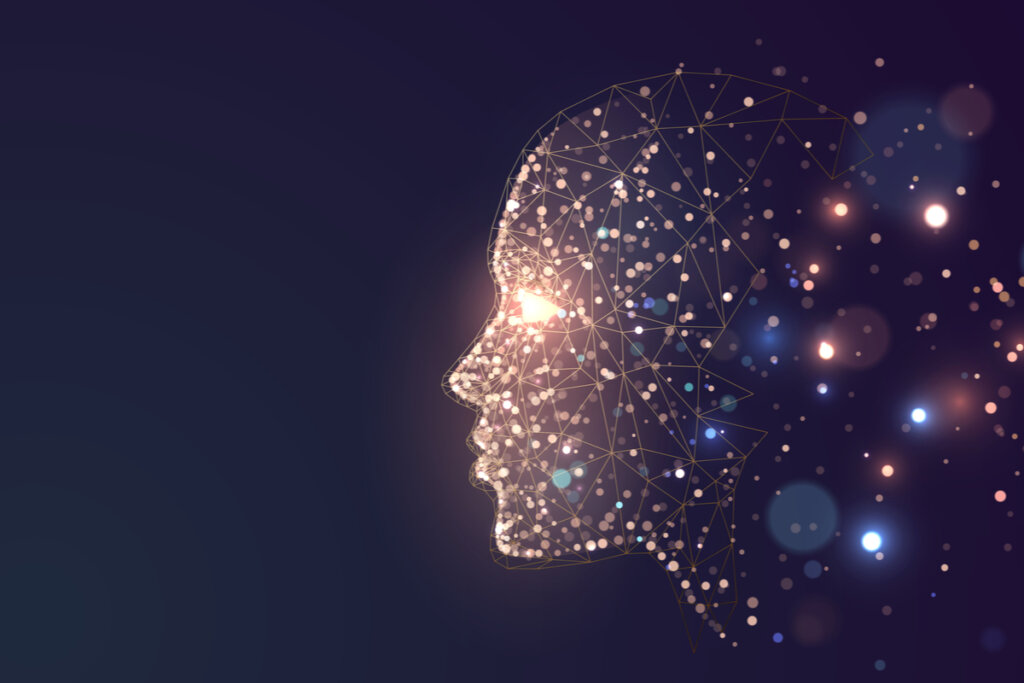Non-Cognitive Skills: What Are They?


Written and verified by the psychologist Valeria Sabater
Non-cognitive skills define a wide variety of skills, such as problem solving, awareness, motivation, perseverance, teamwork, etc. According to experts in organizational psychology, these are skills that are going to be crucial in the labor market and in the social transformations that are to take place shortly.
We’re talking about what’s known as the ‘fourth industrial revolution’, an era that’s already begun and that’s focused on technological innovation. In a few years, we’ll need highly skilled workers. We’re not just referring to people with college degrees and postgraduate degrees. In fact, the future will belong to those with a good grasp of psycho-emotional, ethical, and behavioral strategies.
Although many see a somewhat blurred line between cognitive and non-cognitive skills, in reality, in some areas there are really clear differences. Understanding them and introducing them into educational curricula will allow us to have generations that are more prepared for future challenges.
Current education should put far more focus on the early development of non-cognitive skills.

Non-cognitive skills
When we think of an educated person, we instantly visualize someone with a good resume. Indeed, for a long time, education has been synonymous with consolidating hard skills (basic theoretical and procedural knowledge for the performance of a series of specific areas).
However, in recent years, this approach has been changing and we now need other kinds of profiles. In fact, in an increasingly robotic, mechanized, and digitized society, to carry out certain jobs, it won’t be enough to simply possess good cognitive skills
As a matter of fact, there may even be robots that surpass us on that plane. Another class of more transversal resources will be needed, in accordance with this next industrial revolution. Non-cognitive skills are the future and consist of patterns of thoughts, feelings, and behaviors not linked only to work settings. They’re life tools (Borghans et al. 2008).
We’re referring to socio-emotional or behavioral characteristics that aren’t fixed personality traits, but that we can learn and develop over time.
The University of Padua (Italy) conducted research that claimed non-cognitive skills have relevant effects both in school performance and in the labor market. It’s important to promote them because they allow people to achieve good cognitive, emotional, and social development.
Let’s find out what non-cognitive skills consist of. We’ll deal with each one separately.
Self-control
Self-control is the ability to control ourselves. It’s the ability to manage our own thoughts, emotions, and behavior in general. This is done with a global perspective, not only taking into account the present moment.
Critical thinking
In our increasingly complex society dotted with fake news, post-truths, and half-truths, critical thinking has become a lifeline. The philosopher, Francis Bacon, claimed that this ability involves having the desire to search, the patience to doubt, and the willingness to meditate.
Critical sense is one of the best non-cognitive skills. It defines the ability to discern between coarse and brilliant arguments, between the data that have value and those that don’t contribute anything. It’s thanks to critical thinking that we put aside prejudices and stereotypes, as well as falsehoods.
Problem-solving skills
If we had better strategies to solve problems, we’d gain in mental health and human potential. Acting proactively, being creative when it comes to generating solutions, knowing how to keep an open mind, and managing stress are great life tools.
Perseverance
Perseverance is our ability to stand firm in carrying out our goals. This capacity, together with the previous one, is what generates good results when it comes to pursuing our own individual goals.
Perseverance is directly related to self-efficacy, the conviction that a task can be successfully performed.
Empathy
Empathy is the ability to put ourselves in the place of another. In fact, to identify and feel the emotions of the other person. This is, perhaps, the most basic non-cognitive ability, involving the development of healthy sociability oriented to the common good.
Empathy also needs to be worked on. Indeed, people who don’t manage their empathy well end up suffering from compassion fatigue or they make selfish decisions to avoid emotional pain.
Emotional health and emotional intelligence
Health and emotional intelligence are important non-cognitive skills. They imply knowing how to understand our emotions and those of others, so we can act accordingly.
Having the skills to regulate what we feel at all times and to place these psychophysical states in our favor mediates our success and well-being.
Social skills
What’s the use of having five doctorates and a dazzling resume if we don’t know, for example, how to communicate with others? Social skills are behaviors aimed at integrating ourselves socially, achieving our goals, and defending our rights, among others. Here are some examples of the most important social skills:
- Assertiveness.
- Communicative skills.
- Active listening.
- Coping with hostility.
- Self-affirmation, defending our rights.
- Expressing and accepting criticism.
- Learning to apologize.
- Learning to express positive and negative emotions.
Motivation for learning and discovery
Non-cognitive skills would be meaningless without motivation. It’s this psychological dimension that drives us, as humans. It includes areas such as curiosity, passion, the establishment of habits, the desire to learn and discover, the ability to improve ourselves…the list goes on.
Resilience
The future holds great challenges for us. However, these challenges will sometimes bring us failure, multiple frustrations, and disappointments. In the midst of this complexity, nothing will be as decisive as being resilient and repeatedly getting back up and learning from our mistakes and adverse experiences.
Resilience is about seeing the opportunity in the midst of difficulty. It’s a non-cognitive skill that we all need to develop.

Self-esteem
Self-esteem refers to the subjective evaluation of self-image. This process varies throughout life. Both external factors (events of success or failure) and internal factors (self-perception, for example) interact to modulate the level of self-esteem.
Work ethic and community responsibility
We understand the work ethic as an essential value that improves coexistence in work settings. It means learning to respect colleagues, and to be responsible, committed, and honest. These non-cognitive abilities can rise to a higher rank when the human being acquires a commitment to society.
This commitment implies the authentic desire to improve it, contribute to its advancement, and seek harmony in the community or the achievement of justice.
How to develop non-cognitive skills
As you may now have deduced, non-cognitive skills are learned throughout life. Furthermore, their acquirement is a long process and these qualities must be worked on and improved over time. We’re going to take a look at some useful strategies in this regard:
- In the educational field, to set up student assemblies where students can give their opinion and propose improvements in their classrooms.
- Role-playing. Each person is asked to play a role in an imaginary situation and they practice the most appropriate behaviors for each scenario.
- Practice relaxation. For emotional management and concentration.
In essence, among the work and life skills that we should promote in the new generations are these kinds of necessary and enriching skills. As we mentioned earlier, many of them are developed and fine-tuned over time. That said, the sooner we plant these seeds in our children’s minds, the sooner we’ll be able to shape a more capable, committed, and brilliant society.
Non-cognitive skills define a wide variety of skills, such as problem solving, awareness, motivation, perseverance, teamwork, etc. According to experts in organizational psychology, these are skills that are going to be crucial in the labor market and in the social transformations that are to take place shortly.
We’re talking about what’s known as the ‘fourth industrial revolution’, an era that’s already begun and that’s focused on technological innovation. In a few years, we’ll need highly skilled workers. We’re not just referring to people with college degrees and postgraduate degrees. In fact, the future will belong to those with a good grasp of psycho-emotional, ethical, and behavioral strategies.
Although many see a somewhat blurred line between cognitive and non-cognitive skills, in reality, in some areas there are really clear differences. Understanding them and introducing them into educational curricula will allow us to have generations that are more prepared for future challenges.
Current education should put far more focus on the early development of non-cognitive skills.

Non-cognitive skills
When we think of an educated person, we instantly visualize someone with a good resume. Indeed, for a long time, education has been synonymous with consolidating hard skills (basic theoretical and procedural knowledge for the performance of a series of specific areas).
However, in recent years, this approach has been changing and we now need other kinds of profiles. In fact, in an increasingly robotic, mechanized, and digitized society, to carry out certain jobs, it won’t be enough to simply possess good cognitive skills
As a matter of fact, there may even be robots that surpass us on that plane. Another class of more transversal resources will be needed, in accordance with this next industrial revolution. Non-cognitive skills are the future and consist of patterns of thoughts, feelings, and behaviors not linked only to work settings. They’re life tools (Borghans et al. 2008).
We’re referring to socio-emotional or behavioral characteristics that aren’t fixed personality traits, but that we can learn and develop over time.
The University of Padua (Italy) conducted research that claimed non-cognitive skills have relevant effects both in school performance and in the labor market. It’s important to promote them because they allow people to achieve good cognitive, emotional, and social development.
Let’s find out what non-cognitive skills consist of. We’ll deal with each one separately.
Self-control
Self-control is the ability to control ourselves. It’s the ability to manage our own thoughts, emotions, and behavior in general. This is done with a global perspective, not only taking into account the present moment.
Critical thinking
In our increasingly complex society dotted with fake news, post-truths, and half-truths, critical thinking has become a lifeline. The philosopher, Francis Bacon, claimed that this ability involves having the desire to search, the patience to doubt, and the willingness to meditate.
Critical sense is one of the best non-cognitive skills. It defines the ability to discern between coarse and brilliant arguments, between the data that have value and those that don’t contribute anything. It’s thanks to critical thinking that we put aside prejudices and stereotypes, as well as falsehoods.
Problem-solving skills
If we had better strategies to solve problems, we’d gain in mental health and human potential. Acting proactively, being creative when it comes to generating solutions, knowing how to keep an open mind, and managing stress are great life tools.
Perseverance
Perseverance is our ability to stand firm in carrying out our goals. This capacity, together with the previous one, is what generates good results when it comes to pursuing our own individual goals.
Perseverance is directly related to self-efficacy, the conviction that a task can be successfully performed.
Empathy
Empathy is the ability to put ourselves in the place of another. In fact, to identify and feel the emotions of the other person. This is, perhaps, the most basic non-cognitive ability, involving the development of healthy sociability oriented to the common good.
Empathy also needs to be worked on. Indeed, people who don’t manage their empathy well end up suffering from compassion fatigue or they make selfish decisions to avoid emotional pain.
Emotional health and emotional intelligence
Health and emotional intelligence are important non-cognitive skills. They imply knowing how to understand our emotions and those of others, so we can act accordingly.
Having the skills to regulate what we feel at all times and to place these psychophysical states in our favor mediates our success and well-being.
Social skills
What’s the use of having five doctorates and a dazzling resume if we don’t know, for example, how to communicate with others? Social skills are behaviors aimed at integrating ourselves socially, achieving our goals, and defending our rights, among others. Here are some examples of the most important social skills:
- Assertiveness.
- Communicative skills.
- Active listening.
- Coping with hostility.
- Self-affirmation, defending our rights.
- Expressing and accepting criticism.
- Learning to apologize.
- Learning to express positive and negative emotions.
Motivation for learning and discovery
Non-cognitive skills would be meaningless without motivation. It’s this psychological dimension that drives us, as humans. It includes areas such as curiosity, passion, the establishment of habits, the desire to learn and discover, the ability to improve ourselves…the list goes on.
Resilience
The future holds great challenges for us. However, these challenges will sometimes bring us failure, multiple frustrations, and disappointments. In the midst of this complexity, nothing will be as decisive as being resilient and repeatedly getting back up and learning from our mistakes and adverse experiences.
Resilience is about seeing the opportunity in the midst of difficulty. It’s a non-cognitive skill that we all need to develop.

Self-esteem
Self-esteem refers to the subjective evaluation of self-image. This process varies throughout life. Both external factors (events of success or failure) and internal factors (self-perception, for example) interact to modulate the level of self-esteem.
Work ethic and community responsibility
We understand the work ethic as an essential value that improves coexistence in work settings. It means learning to respect colleagues, and to be responsible, committed, and honest. These non-cognitive abilities can rise to a higher rank when the human being acquires a commitment to society.
This commitment implies the authentic desire to improve it, contribute to its advancement, and seek harmony in the community or the achievement of justice.
How to develop non-cognitive skills
As you may now have deduced, non-cognitive skills are learned throughout life. Furthermore, their acquirement is a long process and these qualities must be worked on and improved over time. We’re going to take a look at some useful strategies in this regard:
- In the educational field, to set up student assemblies where students can give their opinion and propose improvements in their classrooms.
- Role-playing. Each person is asked to play a role in an imaginary situation and they practice the most appropriate behaviors for each scenario.
- Practice relaxation. For emotional management and concentration.
In essence, among the work and life skills that we should promote in the new generations are these kinds of necessary and enriching skills. As we mentioned earlier, many of them are developed and fine-tuned over time. That said, the sooner we plant these seeds in our children’s minds, the sooner we’ll be able to shape a more capable, committed, and brilliant society.
All cited sources were thoroughly reviewed by our team to ensure their quality, reliability, currency, and validity. The bibliography of this article was considered reliable and of academic or scientific accuracy.
- Brunello, Giorgio, and Martin Schlotter. 2011. Non-Cognitive Skills and Personality Traits: Labour Market Relevance and Their Development in Education & Training Systems. Discussion Paper No. 5743. IZA.
- Dee, T. S., and M. R. West. 2011. “The Non-Cognitive Returns to Class Size.” Educational Evaluation and Policy Analysis, vol. 33, no. 1, 23–46.
- García, Emma. 2013. What We Learn in School: Cognitive and Non-Cognitive Skills in the Educational Production Function. Columbia University.
- Gintis, Herbert. 1971. “Education, Technology, and the Characteristics of Worker Productivity.” The American Economic Review, vol. 61, no. 2, 266–279.
This text is provided for informational purposes only and does not replace consultation with a professional. If in doubt, consult your specialist.







